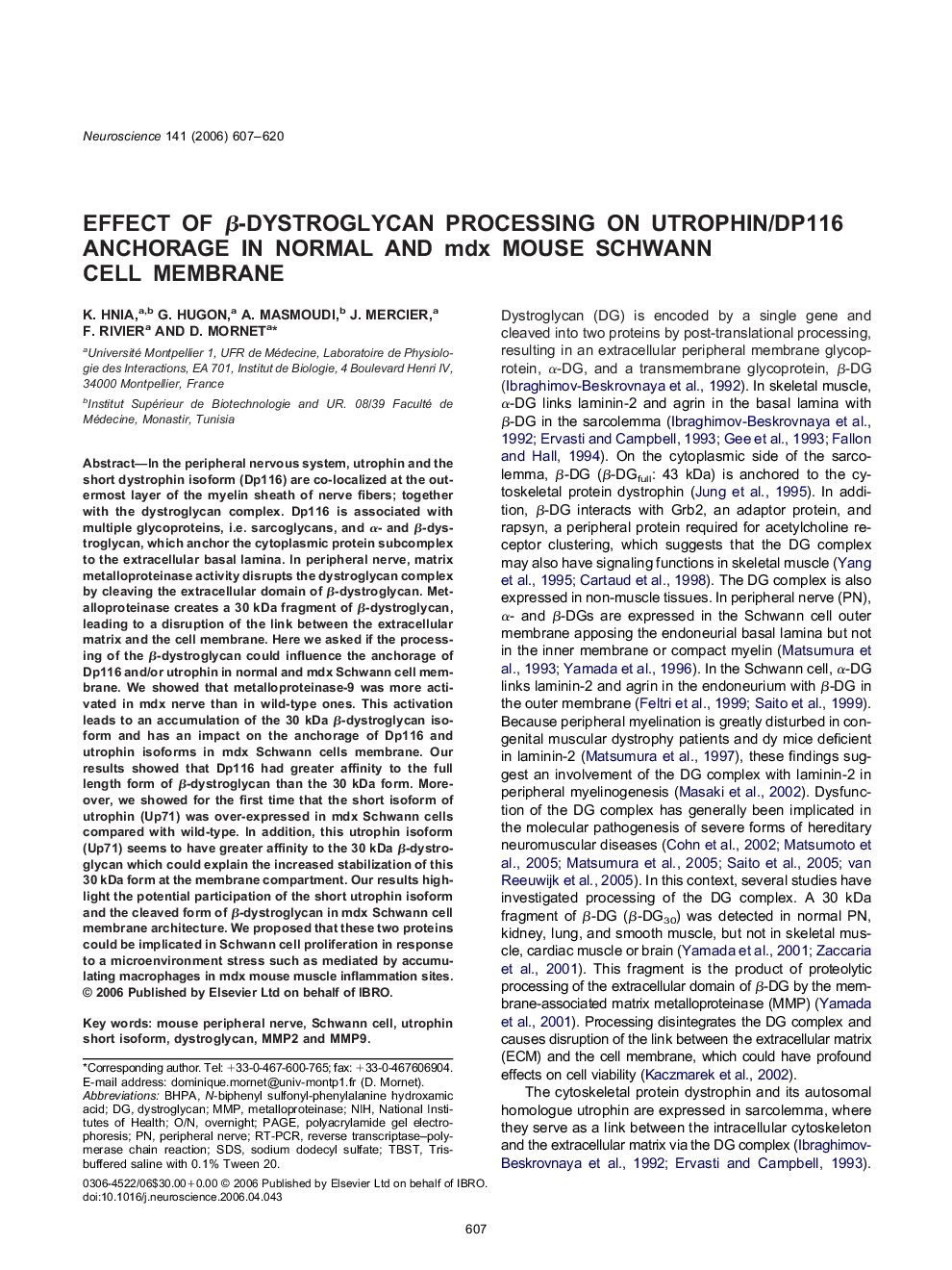| کد مقاله | کد نشریه | سال انتشار | مقاله انگلیسی | نسخه تمام متن |
|---|---|---|---|---|
| 4342757 | 1295892 | 2006 | 14 صفحه PDF | دانلود رایگان |

In the peripheral nervous system, utrophin and the short dystrophin isoform (Dp116) are co-localized at the outermost layer of the myelin sheath of nerve fibers; together with the dystroglycan complex. Dp116 is associated with multiple glycoproteins, i.e. sarcoglycans, and α- and β-dystroglycan, which anchor the cytoplasmic protein subcomplex to the extracellular basal lamina. In peripheral nerve, matrix metalloproteinase activity disrupts the dystroglycan complex by cleaving the extracellular domain of β-dystroglycan. Metalloproteinase creates a 30 kDa fragment of β-dystroglycan, leading to a disruption of the link between the extracellular matrix and the cell membrane. Here we asked if the processing of the β-dystroglycan could influence the anchorage of Dp116 and/or utrophin in normal and mdx Schwann cell membrane. We showed that metalloproteinase-9 was more activated in mdx nerve than in wild-type ones. This activation leads to an accumulation of the 30 kDa β-dystroglycan isoform and has an impact on the anchorage of Dp116 and utrophin isoforms in mdx Schwann cells membrane. Our results showed that Dp116 had greater affinity to the full length form of β-dystroglycan than the 30 kDa form. Moreover, we showed for the first time that the short isoform of utrophin (Up71) was over-expressed in mdx Schwann cells compared with wild-type. In addition, this utrophin isoform (Up71) seems to have greater affinity to the 30 kDa β-dystroglycan which could explain the increased stabilization of this 30 kDa form at the membrane compartment. Our results highlight the potential participation of the short utrophin isoform and the cleaved form of β-dystroglycan in mdx Schwann cell membrane architecture. We proposed that these two proteins could be implicated in Schwann cell proliferation in response to a microenvironment stress such as mediated by accumulating macrophages in mdx mouse muscle inflammation sites.
Journal: Neuroscience - Volume 141, Issue 2, 2006, Pages 607–620